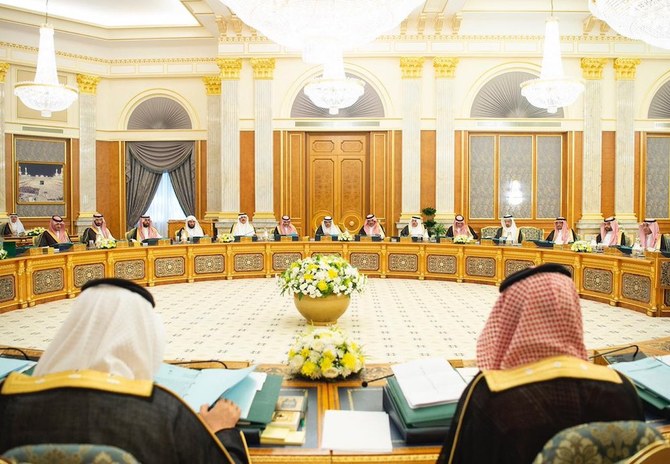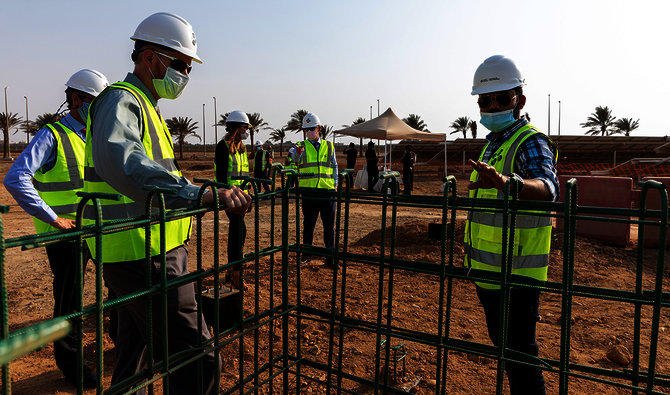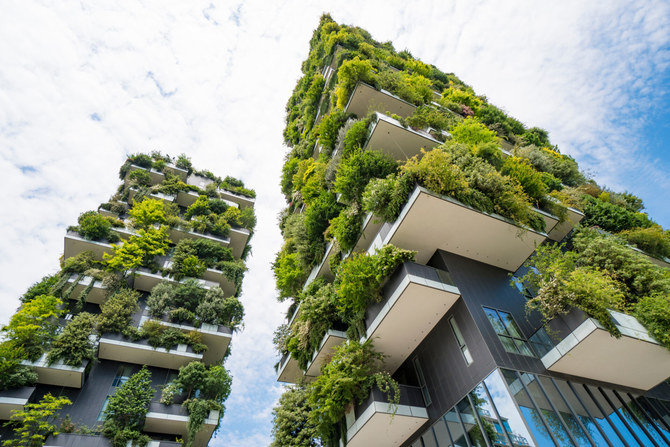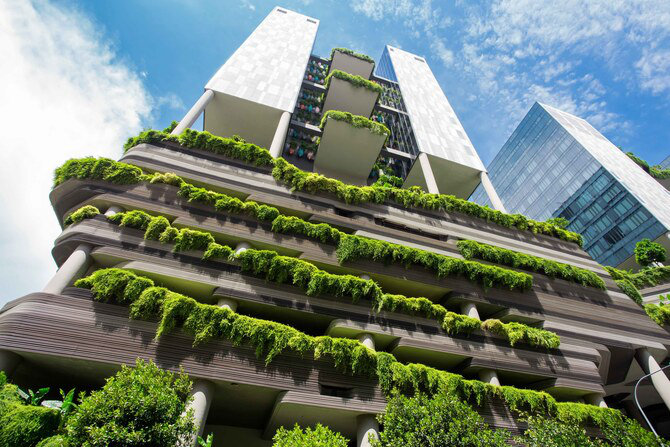RIYADH: Saudi Arabia warned pilgrims on Tuesday not to mix politics with religion while performing Hajj.
During a meeting of the Saudi Cabinet, chaired by King Salman, pilgrims were urged to be considerate of the privacy and spirituality of the holy places and not to engage in political acts.
The warning follows a veiled threat by Iran’s Supreme Leader Ali Khamenei of disruption and possible political demonstrations by Iranian pilgrims at this year’s Hajj, and criticism of Saudi organization of the pilgrimage.
“Among major mistakes is that they say, ‘Do not politicize Hajj’,” Khamenei said. “Creating unity is a political matter. Supporting and defending the oppressed in the world of Islam, like the Palestinian and Yemeni nations, is a political matter, based on Islamic teachings and obligations.
“Hajj is a political act and this political act is … a religious obligation,” the ayatollah said.
The Iranian leader also suggested that Saudi security measures at the annual pilgrimage were too tough. “The Saudi government bears major responsibilities,” he said. “Among their responsibilities is protecting the safety and security of pilgrims, but they should not spread a security atmosphere.
“While the pilgrims are in Makkah and Madinah, they should treat the pilgrims properly, respectfully, and with honor, because they are the guests of God.”
The ayatollah’s remarks were also condemned by the exiled Iranian author and journalist Amir Taheri. “Khamenei has ended the 10-year truce on Hajj, and called for demonstrations during the next pilgrimage,” Taheri said.
“The stage is set for riots by pilgrims sent by Tehran to Saudi Arabia to incite violence during Hajj.
“Saudi Arabia may regret having increased Iran’s Hajj quota by almost 10,000. This year some 90,000 Iranian pilgrims may turn the Islamic ritual into an anti-American demonstration that could lead to clashes among pilgrims, and with Saudi security.”
The Saudi Minister of Media, Turki Al-Shabanah, called on worshippers to refrain from taking part in any political activities — such as the raising of slogans — that might disturb the pilgrimage. He said the Kingdom would not accept such behavior, and would take all necessary action to prevent misconduct.
Chairing the ministerial meeting in Jeddah, King Salman welcomed pilgrims and directed all Hajj organizing bodies to continue providing security, stability and tranquility for the visitors.
Addressing the ministerial meeting, held at Al-Salam Palace in Jeddah, King Salman welcomed pilgrims on their journey to perform the fifth pillar of Islam and directed all bodies involved in organizing Hajj to continue in providing security, stability, and tranquility for pilgrims and improve the services provided to them at land, sea and air entry points to the country.
The Cabinet applauded the continued development of pilgrim services, noting the achievement of the Makkah Road initiative to speed up pre-travel administration and baggage issues.
Cabinet meeting
In other business, ministers commended a decision reached during the recent OPEC and OPEC + meetings to extend the agreement to reduce production until the end of the first quarter of 2020, which would contribute to the stability of oil markets. The move would establish a framework of sustainable cooperation which would work to the benefit of producers, consumers, and the global economy, the Cabinet agreed.
Ministers also welcomed a power-sharing agreement reached between military rulers and opposition leaders in Sudan, which they hoped would pave the way to a new era of security, stability and prosperity for the Sudanese people.
The meeting went on to approve an air services agreement between Saudi Arabia and the Seychelles and gave the go-ahead for talks on a memorandum of understanding between the Saudi General Auditing Bureau and the National Auditing Bureau of Sudan for cooperation in the field of professional accounting and auditing.
The Cabinet also decided to form a board of directors for the sustainable agricultural rural development program under the chairmanship of the Saudi environment, water and agriculture minister, with representation from several government sectors and the Cooperative Societies Council.
An e-commerce system was also approved by the Cabinet.

































